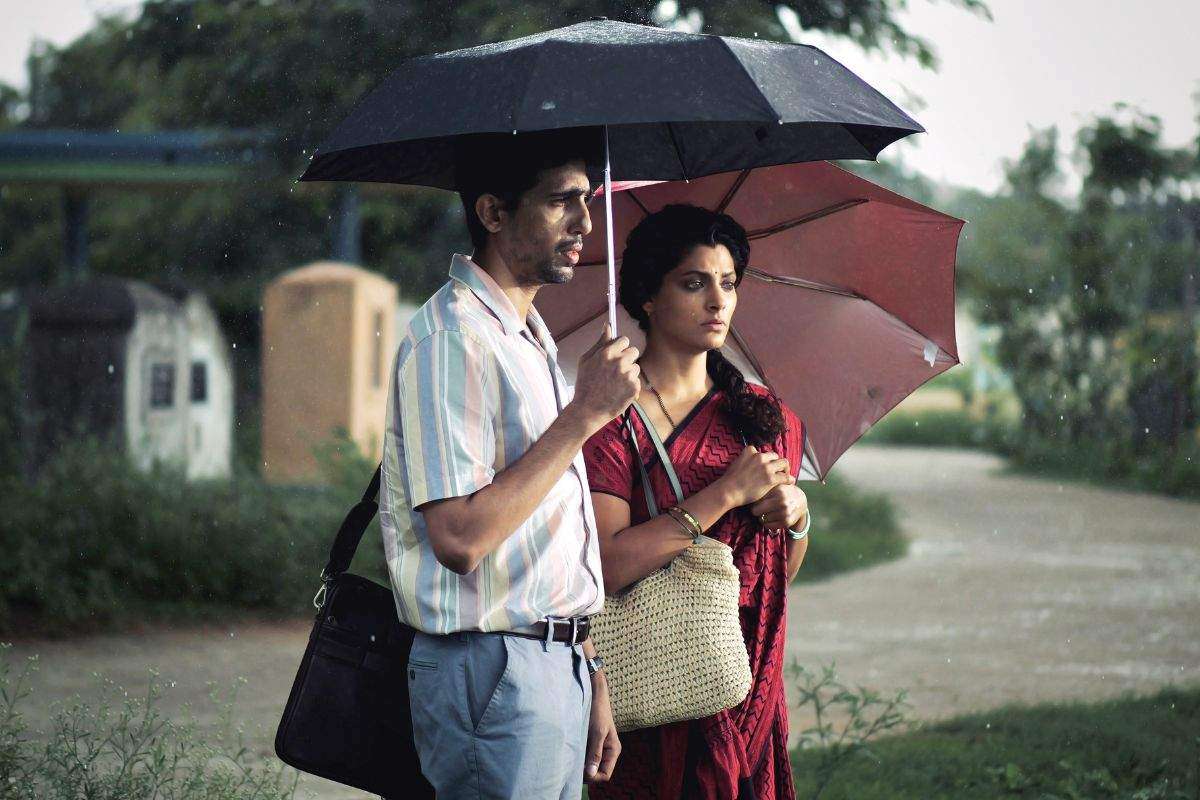Raj Rachakonda’s 8 AM Metro has the ever-reliable premise of two strangers forging a deep bond in the unlikeliest circumstances. When Iravati (Saiyami Kher) is asked by her much younger sister, Riya (Nimisha Nair), to be by her side in her state of pregnancy, she is initially apprehensive. The journey would entail a train/metro ride. Traveling on a train has its own painful history with her, a site of traumas that she hasn’t been able to address or shake off.
A random stranger, Preetam (Gulshan Devaiah), helps her calm down after she has a panic attack while attempting to board a metro. He becomes a constant presence every morning. Their routines align, leading to mutual warmth. Poetry emerges as a connective thread that strongly binds the two. 8 AM Metro’s screenplay, whose credits are shared among four people, is so determinedly platitudinous, banking on dialogues that are full of patently declarative sentiments instead of evoking sincere emotion. It is a classic case where everything is so overwritten and painfully underlined that the characters and their emotional conflicts come off as clearly orchestrated rather than being effective and honest.
Saiyami Kher and Gulshan Devaiah cannot overcome the stubborn stiffness of the material. Devaiah is saddled with having to summon the charm of poetic dexterity and knowledge, which his character passes onto Iravati. The whole equation feels more imposed than organically pleasing. Why does everything in the film have the impression of being planted? It is among the most persistent, niggling questions that will be bothering any viewer. It is too manicured in its cozy sentiments, hesitant to be truly ruffled. When things reveal their awry side, it is too late and too much.
The belated arrival of grief and torment and their excavation in the narrative borders on being painfully manufactured. 8 AM Metro is one of those films that has an innate confusion about what lyricism means. It conflates it with sincerity and significance by placing it in regular interactions. But the delivery of poetically waxing dialogues is distinctively jarring and conspicuously studied. You feel the hardness with which the associations are established instead of a supple flow. Kher mouths the poems her character writes with such dull lackadaisicalness it becomes a task to see emotion leak through those surfaces.

Iravati’s mental struggles are fundamental to the basis of her quickly blossoming relationship with Preetam. He helps her ease out of it as he invites her into a serene, undemanding friendship. He reopens up the world in all its curiosity and wonder to her. She picks up her habit of reading and absorbs his rich reservoir of knowledge. There’s so much he has to offer. It’s as if he has been waiting for an opportunity wherein he could hurl it at someone.
She is the ideal listener who patiently registers every one of his countless anecdotes and factoids. It is only much later that she actually asserts some individuality and picks cudgels with his ideals and the radical values he is pushing forth. Even then, there’s no such fascinating challenge. It seems an imbalanced relationship with him coaching her in the wonders and beauty of the world drenched in literature and poetry. She is a receptacle, soaking it all in.
Rachakonda is also teasing a meditation on the meaning and extent of loyalty. What does it mean to be faithful? Can an intimate emotional connection be sufficient in itself to be regarded as a betrayal of the other to whom one is committed? When does the boundary get overstepped? Are the two in such a relationship even aware they are breaching supposed rules of conduct? A moment comes when Iravati confronts the realization that she is violating key tenets of faithfulness to her husband, Umesh (Umesh Kamat). The character of the husband is a curious one.
In the beginning, it is made to bear on the viewer that Umesh is an inattentive husband drowning in his work. It almost becomes the premise that implicitly enables and emboldens the quiet, tender relationship between Iravati and Preetam. Conveniently, however, Umesh turns out to have been the most loving, caring, and devoted husband. The screenplay makes it a point to have Iravati spell out how Umesh has always been such a source of support in the harshest of situations. That the film hurtles in its final stretch to show how perfectly Iravati’s stalemate-stuck marriage folds back together into blissful contentment is one of the many grating indicators of the inconsistency and ultimate cluelessness that bogs down 8 AM Metro.




![Deep End [1970] : Blood, Bath & Beyond.](https://79468c92.delivery.rocketcdn.me/wp-content/uploads/2017/03/deep-end-player-1920x1080-768x432.jpg)

![Batman: The Dark Knight Returns [2012] Review – Old Heroes Never Die. They Just Get Darker.](https://79468c92.delivery.rocketcdn.me/wp-content/uploads/2020/04/batman-tdkr-2-768x432.jpg)

